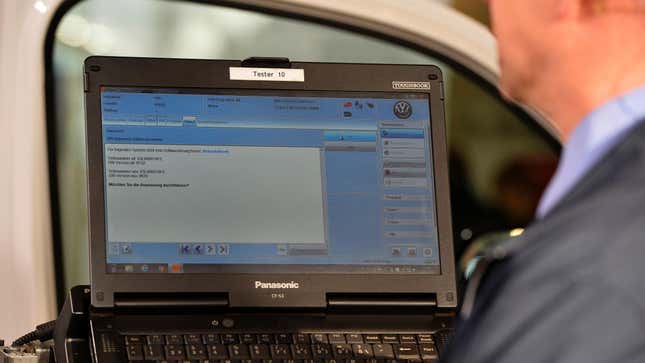
Over-the-air updates are quickly becoming commonplace in cars, from electric vehicle startups like Tesla and Lucid down to traditional old Ford. West Virginia, however, seems to take issue with this shiny new way of keeping cars up to date — or at least its dealer association does.
At issue is West Virginia House bill HB4560, introduced earlier this month. It contains a number of amendments to existing state laws about how car dealerships operate and what’s in their domain rather than under the purview of manufacturers. Much of the bill is banal clarifications of existing language, but a few points stand out.
![[Introduced February 07, 2022; Referred to the Committee on the Judiciary] A BILL to amend and reenact §17A-6A-2, §17A-6A-3, §17A-6A-5, §17A-6A-8a, §17A-6A-10, §17A-6A-11, §17A-6A-12, §17A-6A-13, §17A-6A-15, §17A-6A-15a, §17A-6A-15c, and §17A-6A-18 of the Code of West Virginia, 1931, as amended, all relating generally to motor vehicle dealers, distributors, wholesalers and manufacturers; clarifying governing law; amending terms related to cancellations of dealer agreements; modifying circumstances not constituting good cause to cancel an agreement; clarifying the standard of proof in termination, cancellation and nonrenewal disputes; modifying compensation terms when contract is discontinued; setting interest rate where payments to dealers from manufacturers or distributors are untimely; increasing the notice period for dealers where a manufacturer or distributor does not approve a successor dealer or executive manager; clarifying provision related to determination of distance between dealerships; restricting manufacturer and distributor use of dealership property; modifying obligations under warranties; clarifying indemnity practices; identifying unlawful practices; and clarifying manufacturer performance standards.](https://i.kinja-img.com/image/upload/c_fit,q_60,w_645/d1b25e912778ade9d2163af90cb597f5.jpg)
The biggest point is an addition to §17A-6A-10 (law names are never legible), which lists “prohibited practices” — things a manufacturer or dealer can’t do. Section 2 of that law refers to things that a manufacturer or distributor may not do, like “Establish, operate or engage in the business of a new motor vehicle dealership.” No direct sales for you, West Virginia.
Subsection R of section 2 of §17A-6A-10, as it stands, states that a manufacturer cannot, “Except for experimental low-volume not-for-retail sale vehicles, cause warranty and recall repair work to be performed by any entity other than a new motor vehicle dealer.” The new text added in HB4560 adds “including post-sale software and hardware upgrades or changes to vehicle function and features, and accessories for new motor vehicles sold by a licensed new motor vehicle dealer. Provided however, this language shall not include any post-sale software upgrades to the motor vehicle’s navigation or entertainment system.”

That means no over-the-air updates provided directly from the manufacturer, as they circumvent the dealer’s slice of the profit pie. That Tesla recall that was done remotely, for which fans praised the company? Illegal in West Virginia, should this bill become a law.
Local West Virginia news outlets claim the bill was originally introduced by the state’s Dealership Trade Organization, a state-level lobbying group that serves the interests of dealer groups in state government. I, for one, cannot imagine why that group wouldn’t want manufacturers fixing customers’ cars directly through over-the-air updates.